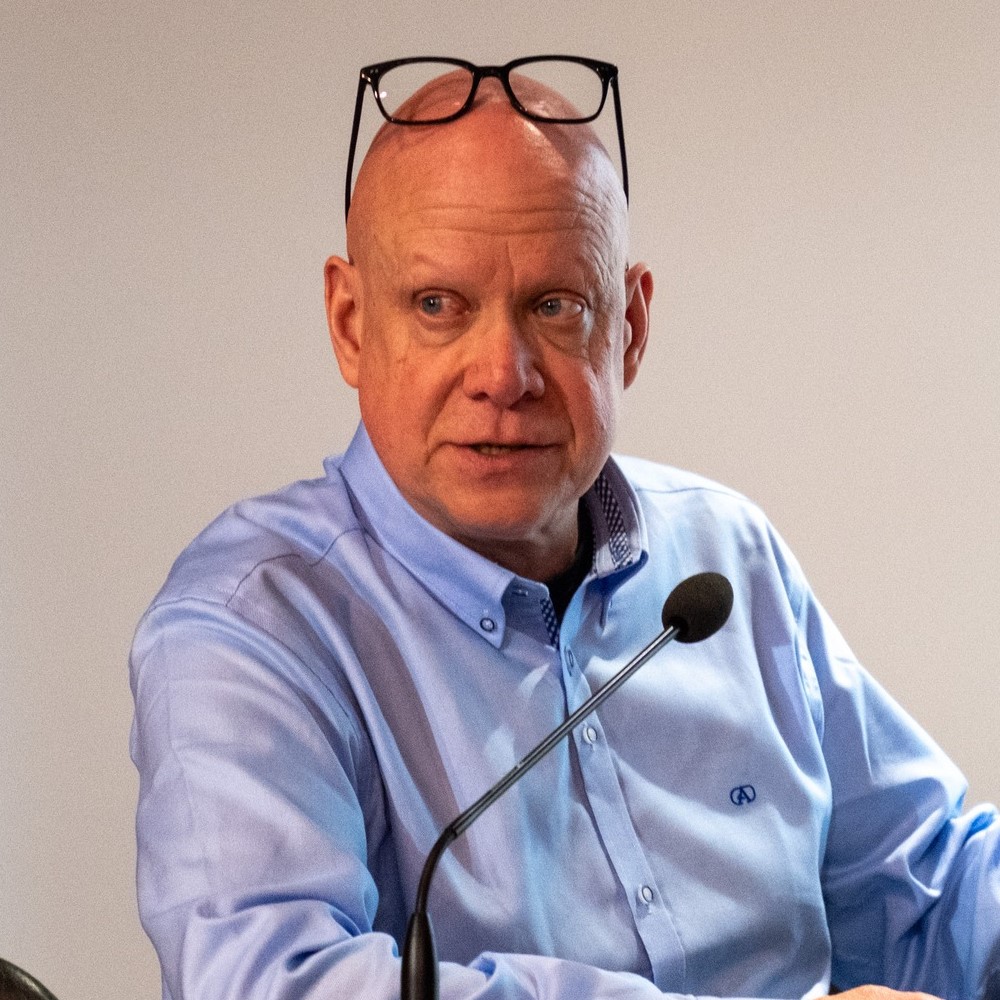The Baron's Briefings
How AI will change our concept of journalism-and in a very short time
Tuesday 19 March 2024
Is Artificial Intelligence about to destroy journalism as we know it and create an extinction event for reporters and editors everywhere?
Well, yes and no, according to David Caswell, an expert on the impact of AI on news operations, who conjured visions of both horror and hope when he spoke about the future of journalism in an AI world in the latest Baron’s Briefing webinar organised by The Reuter Society and The Baron. 
He said we have to see AI as un unstoppable force, already having a serious impact on news operations, and warned that this is only the beginning. AI is evolving at such speed that there is no way to assess with any accuracy what it will be able to do in the future. But, he said, AI still cannot compete with humans when it comes to observation and original, high-quality creative writing and reporting.
Caswell reviewed the recent history of AI, showing the breathtaking speed at which it is evolving. If Chat-GPT 2 operated within a framework of 1.2 billion parameters in 2019, GPT-4, launched in 2023, utilises 1.76 trillion. What that means in practice is that it can, in a matter of seconds, write accurate, comprehensive reports in a way that an experienced journalist might need a couple of hours to produce.
AI is already able to take over routine journalistic tasks, such as market reports, 10k filings, even match reports. That does not have to be threatening. Reuters is just one of many news organisations which is already deploying AI to free up journalists from mundane work, and Reuters journalists are working on ways to use the power of AI to support and extend editorial operations.
In the same week as Caswell's talk, Steve Hasker, the CEO of Thomson Reuters, told the Financial Times that TR had an $8 billion war chest for acquisitions and investments in AI and would spend $100 million a year to develop its own AI technology. He also said that TR has done a number of major deals to sell Reuters news content to AI groups to enable them to train their models.
But even if journalists and their chieftains are seeking to harness this latest tech revolution, rather than let it steamroller them, it does not mean their jobs are safe. David warned that there are many different AI models backed by the giant tech companies, and each of them is evolving and improving its capabilities at an awesome speed. It is, he said, not only journalists who will see the impact; so too will doctors, lawyers, teachers and many other professions.
We should certainly expect AI to be able to do copy editing, write headlines, produce feature content, create videos and carry out the work of thousands of journalists, he forecast. There are some pretty big risks in this, of course. AI models are quite capable of producing their own misinformation and fake news and are not always adept at spotting the fakes generated by others. That means some human oversight will remain utterly vital.
Caswell also said that while it is clear AI models are excellent at hoovering up information, learning writing styles and emulating the work of human writers and producers, their strength lies essentially in absorbing and regurgitating, not creating something truly original.
The kind of high-end journalism which is based on personal observation and interpretation will remain beyond AI’s reach. AI cannot write a theatre or a restaurant review, or a political commentary. Neither can it add the genuine colour of an eye-witness report, or a personal interview.
So, one part of the journalistic world seems safe from AI’s advance, at least for now. But will that refuge be enough to accommodate all those who toil as journalists now? Probably not, it would seem. Does that mean journalism becomes a high-end, elite profession?
Caswell turned to the Dean of the Columbia School of Journalism, Jelani Cobb, to sum up where we stand right now: “AI is an un-ignorable force which journalism has to organise itself around,” he said in a keynote address to a conference in Paris last December.
That might turn out to be an almost optimistic take on things. AI also has the potential to be a hurricane, destroying the journalistic ecosystem as it chews up and absorbs the entry-level roles which enable journalists to learn their trade.
As Caswell stressed, of all the tectonic shifts which have impacted journalism and news in recent decades, AI will certainly be the biggest. We are only at the beginning of this transformation and have no map to predict where it will lead. We can only be sure that in a few years journalism will look pretty different to today, he said.
Note: Mark Wood is currently Chair of Percent and Boclips, two AI-driven tech companies, and Chair of Barnardo's